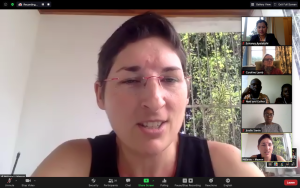
Melanie Montinard, Mawon, Brazil
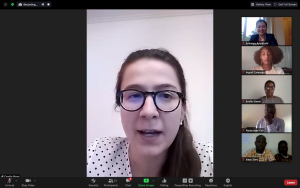
Camila Pinto, Migraflix, Brazil
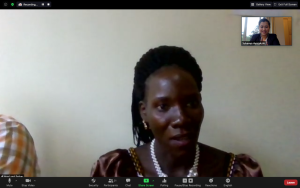
Esther Yanya, South Sudanese Refugee Entrepreneur from Uganda
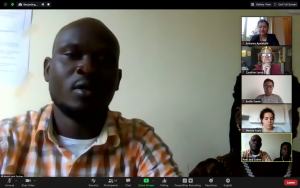
Noel Lilija, Microfinance Officer, CRESS UK, Arua, Uganda
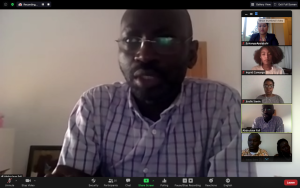
Abdoulaye Fall, Self Funded Communities ACAF, Barcelona, Spain
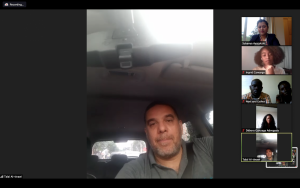
Talal Al-Tinawi, Syrian Refugee Entrepreneur in Brazil

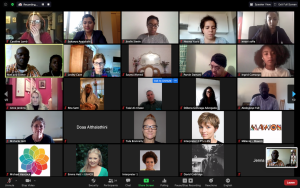
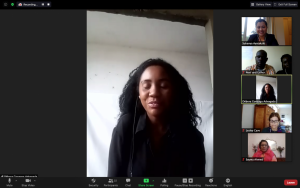
Debora Gonzaga Brassau Brazil
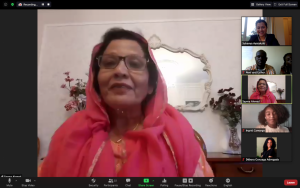
Sayma Ahmad, Co-Founder and Honorary Chair, Unity in Vision, Dorset UK
Globally, there are 65 million people forcibly displaced from their homes (WHO, 2019). Achieving legitimacy and acceptance and integration into the host community remains a challenge in most host countries with an increased inflow of displaced populations. What do refugees hope for? Safety, security, an ability to carve out a future for themselves and their loves ones and retaining the dignity of being a human being.
We recently concluded a study in Uganda,Brazil and Spain exploring how displaced populations seek and achieve legitimacy through the routes of entrepreneurship in collaboration with co-host Jiselle Steele. This study allowed us the opportunity to engage with displaced communities and individuals whose resilience, perseverance the the zeal to thrive, not just survive, showcases the true essence of the human spirit. Not only that, with the entrepreneurial offerings they created they are making huge community impacts to support others in the same circumstances as them- an empowerment pathway through entrepreneurship.
With the rapid developments in the pandemic sweeping our world, all the policy discussions around economic recovery has managed to not take into consideration the plight of the displaced populations engaged in business activities, mostly in the informal sectors.
This year, as part of the Global Entrepreneurship Week 2020, BU Social Entrepreneurs Forum (BUSEF), organised an event to celebrate the work of refugee entrepreneurs and support organisations that empower the displaced populations in integration and their entrepreneurial ambitions.
On the 18th of November, 2020, BUSEF brought together refugee entrepreneurs and support organisations from Uganda, Brazil, Spain and the UK. Esther Yanya, a 27- year old South Sudanese refugee, living in a displacement camp in Arua, Northern Uganda shared with us her harrowing story of walking across hundreds of miles with two very young children and arriving to no support, no food and so shelter. The work of Cress UK-led by Caroline Lamb (Founder and Chair or Trustees) and Noel Lilija, Project Lead at CRESS Arua, an aid organisation working to support refugees in medical care, education, agricultural training and microentrepreneurship- was the turning point in Esther Yanya’s life and now she not only leads a savings group based business in tailoring (She was wearing the most stunning dress similar to these Peaches Boutique white dresses for prom she crafted herself) but is also empowering other women in the displacement camp to achieve financial independence and a future for themselves.
Talal Al-Tinawi joined us from Brazil where he is a Syrian refugee and a gastronomy business owner. Having had to leave his mechanical engineering business in Damascus, Talal shared with us the role that society plays in integrating refugees like himself. The institutional barriers not withstanding, the role of social inclusion in allowing emotional security to refugees is something that is not well researched or discussed. Supported by Migraflix, Talal set up his gastronomy business, in the absence of being able to get employment.
What is quite extraordinary about both Talal and Esther is that, not withstanding their personal circumstances, they think of the community around them and how to support, how to empower. Talal has been working tirelessly to provide food to those vulnerable during this pandemic.
In addition to the refugee entrepreneurs, the event brought together Migraflix, Mawon, Brassau from Brazil and Cress UK with team from UK and Uganda, Self Funded Communities ACAF from Spain and Unity in Vision, Dorset, UK.
So what was the potential impact of an event such this? The obvious answer is of course, raising awareness and building the momentum in this conversation but also and critically, gaining increased visibility for the individuals who identify themselves and refugee entrepreneurs and the critical work that the support organisations do independent of and with very little state/institutional support.
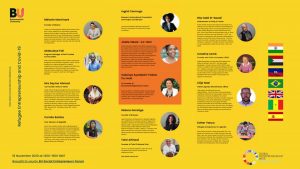
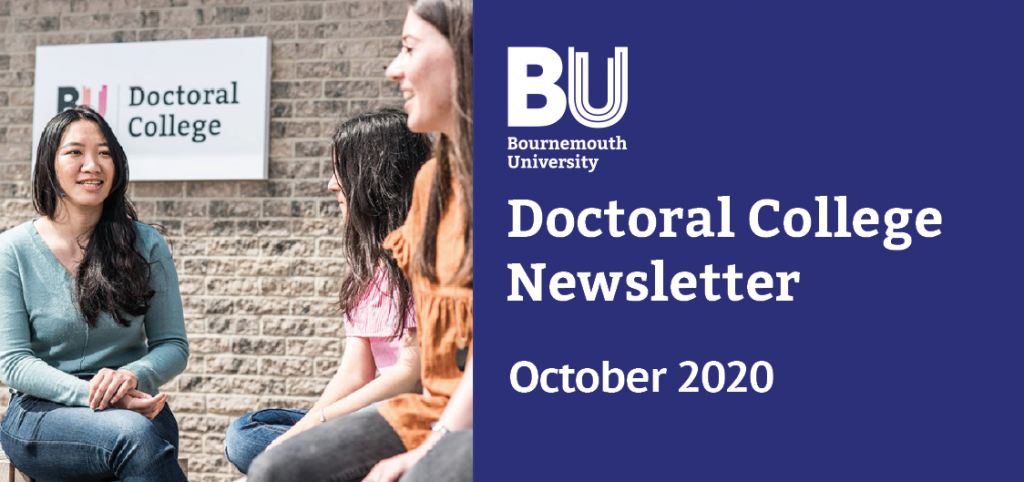
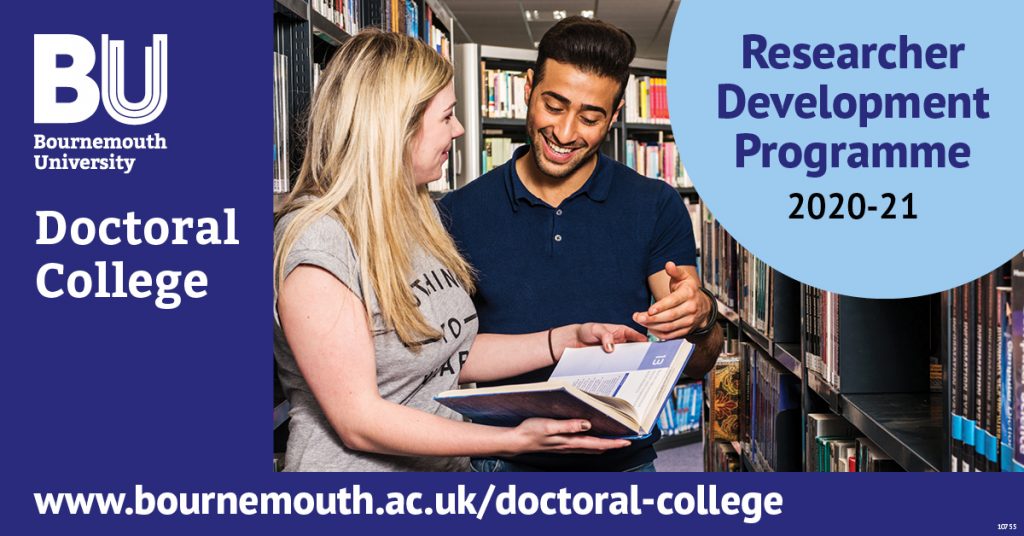
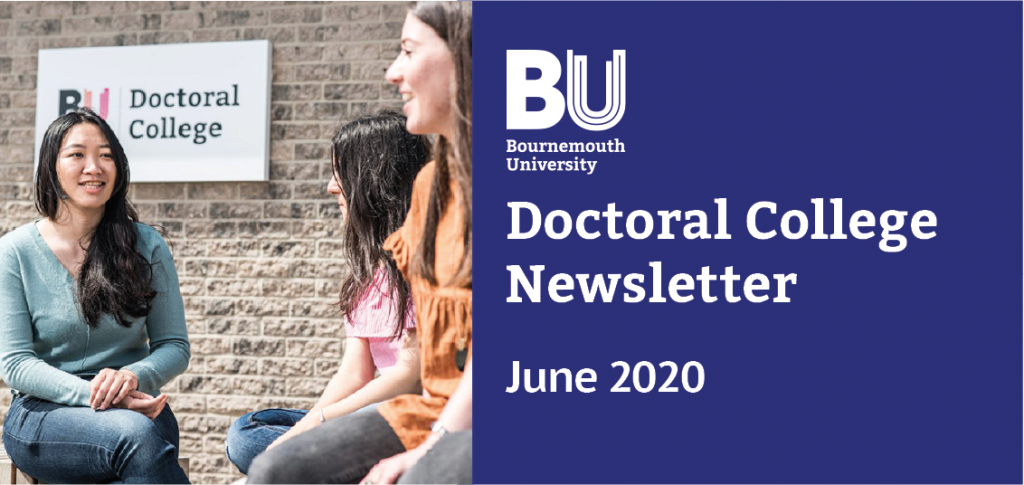
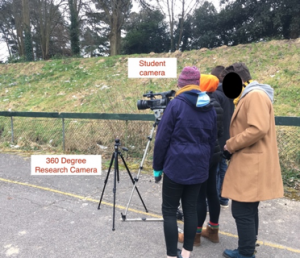

 International Education as part of the Graduate Student Research in Progress Supplement. Contributions were made by graduate students who are currently studying in a MA, Ed.D. or Ph.D. programme from across the globe. I was very proud to have represented Bournemouth University and the UK alongside Oxford University, the other highlighted British institution. It was wonderful showcasing the impact of peer to peer employability coaching and mentoring on student confidence and awareness. With such a positive result shown by my pilot project and fieldwork where FMC students were participants, I can not wait to investigate future implementation.
International Education as part of the Graduate Student Research in Progress Supplement. Contributions were made by graduate students who are currently studying in a MA, Ed.D. or Ph.D. programme from across the globe. I was very proud to have represented Bournemouth University and the UK alongside Oxford University, the other highlighted British institution. It was wonderful showcasing the impact of peer to peer employability coaching and mentoring on student confidence and awareness. With such a positive result shown by my pilot project and fieldwork where FMC students were participants, I can not wait to investigate future implementation.



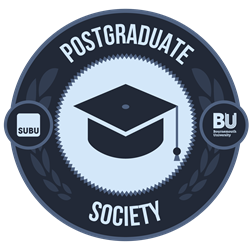
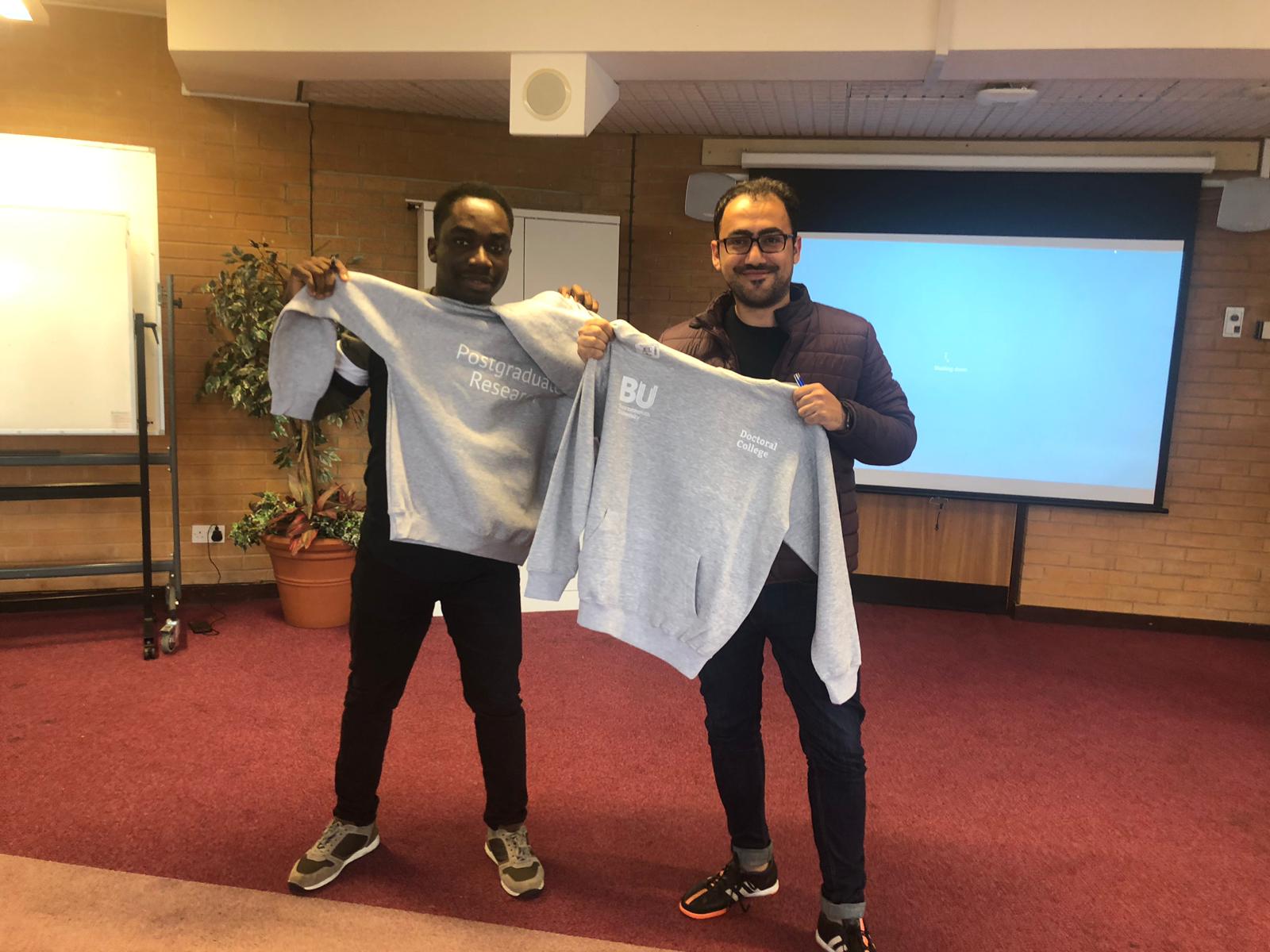
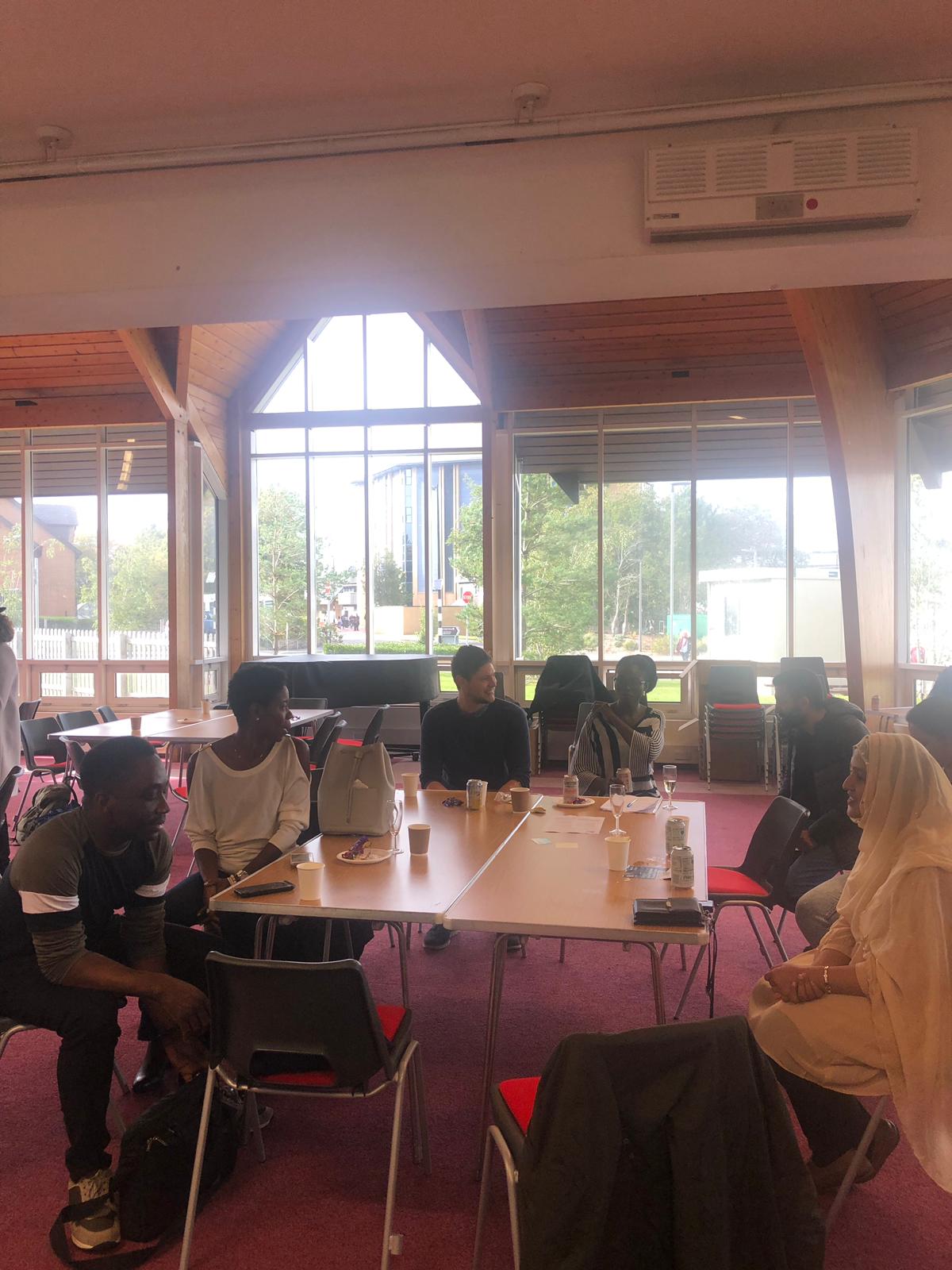
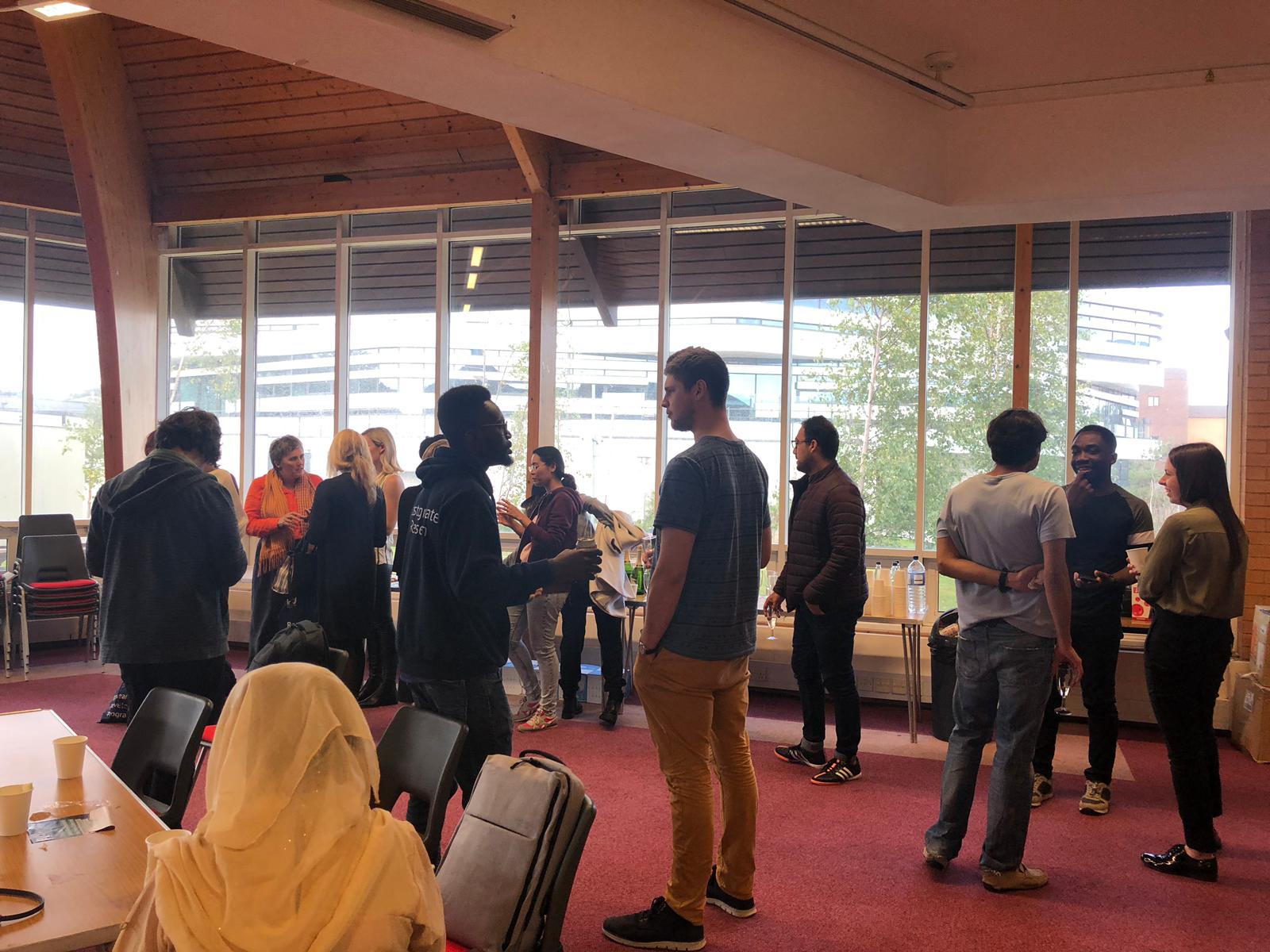
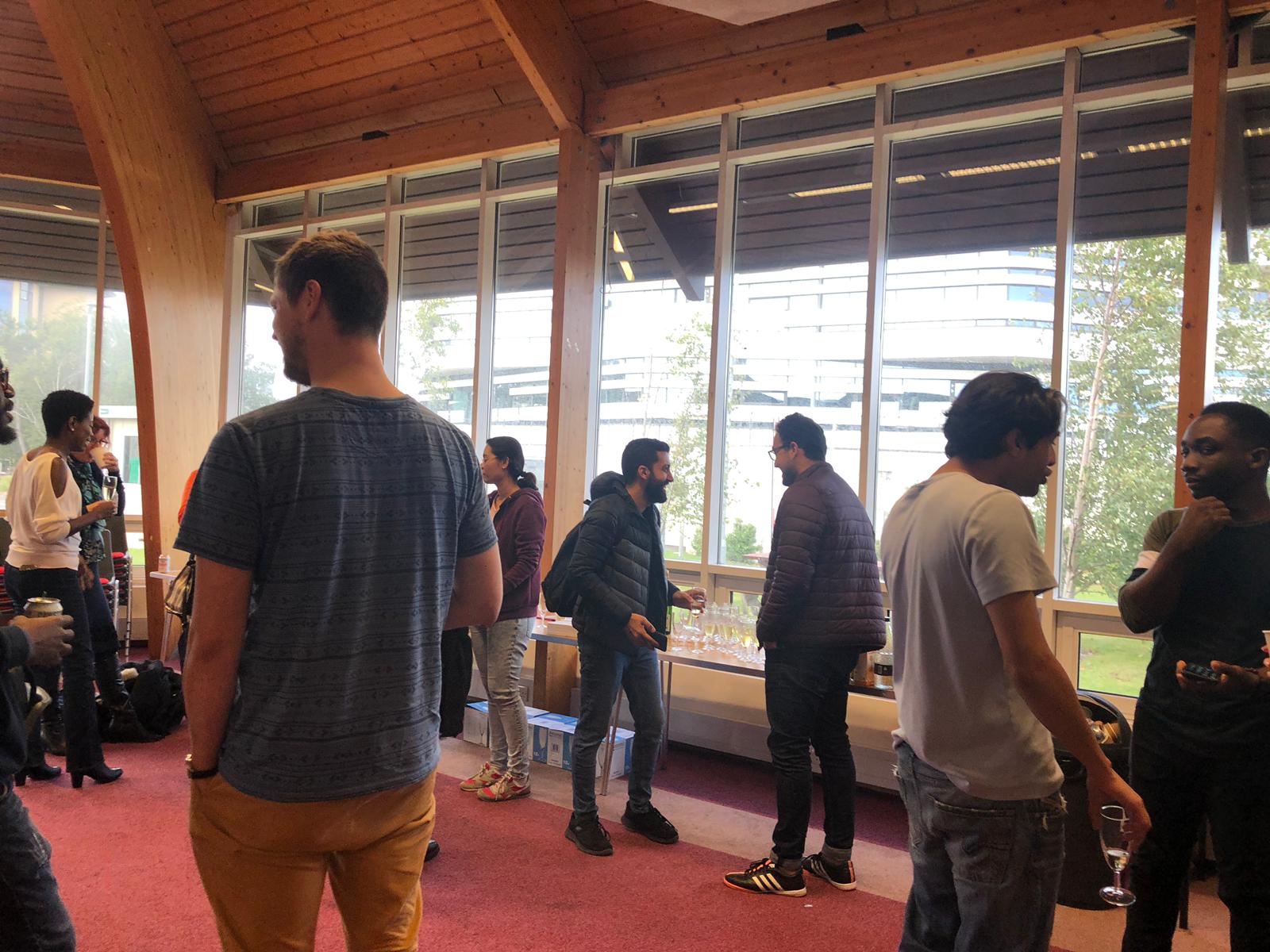
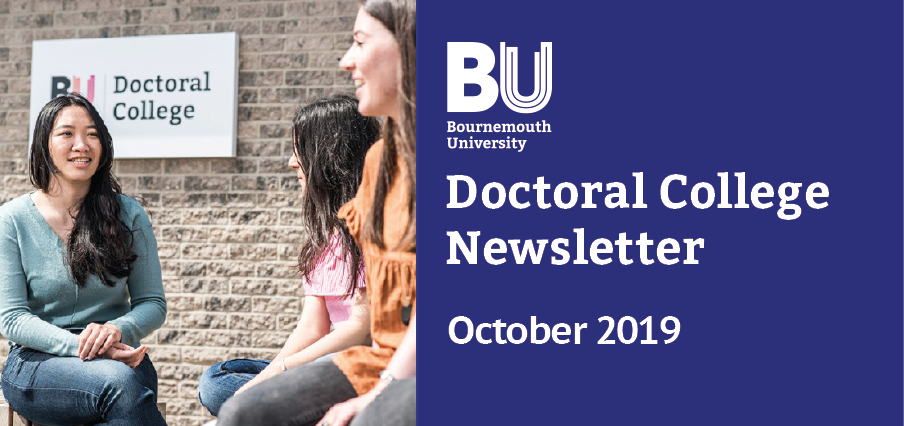














 REF Code of Practice consultation is open!
REF Code of Practice consultation is open! BU Leads AI-Driven Work Package in EU Horizon SUSHEAS Project
BU Leads AI-Driven Work Package in EU Horizon SUSHEAS Project Evidence Synthesis Centre open at Kathmandu University
Evidence Synthesis Centre open at Kathmandu University Expand Your Impact: Collaboration and Networking Workshops for Researchers
Expand Your Impact: Collaboration and Networking Workshops for Researchers ECR Funding Open Call: Research Culture & Community Grant – Apply now
ECR Funding Open Call: Research Culture & Community Grant – Apply now ECR Funding Open Call: Research Culture & Community Grant – Application Deadline Friday 12 December
ECR Funding Open Call: Research Culture & Community Grant – Application Deadline Friday 12 December MSCA Postdoctoral Fellowships 2025 Call
MSCA Postdoctoral Fellowships 2025 Call ERC Advanced Grant 2025 Webinar
ERC Advanced Grant 2025 Webinar Update on UKRO services
Update on UKRO services European research project exploring use of ‘virtual twins’ to better manage metabolic associated fatty liver disease
European research project exploring use of ‘virtual twins’ to better manage metabolic associated fatty liver disease